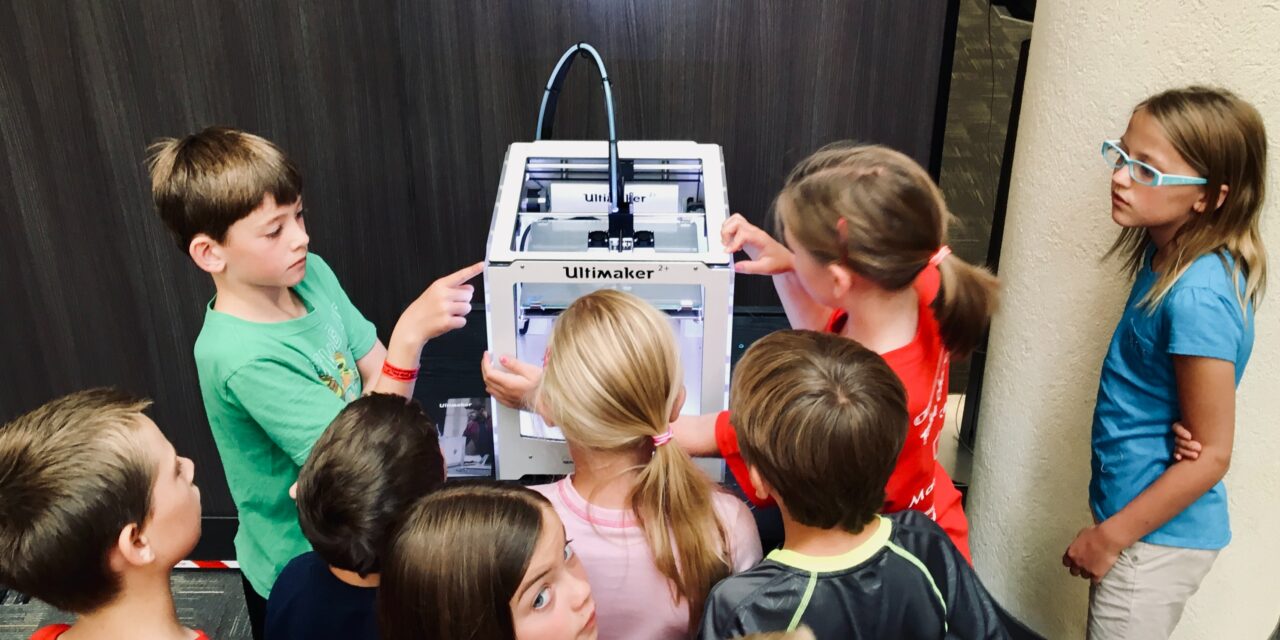In the days of yore, schools failed their pupils if they did not equip them with a good knowledge of Latin, an entry requirement for most professions. Likewise, schools of today must educate students to be proficient in the use of technology as it will be an indispensable requisite for practically any employment be it academic, professional, vocational or practical.
One issue for schools, as indeed for most businesses, is the spiralling cost of technology – the single biggest strain, after staffing, for many school budgets, whilst the speed of continued developments in technology only helps to ramp up the costs. In the twelve years of my first headship (2002-2013), we moved from providing every classroom with a wall-mounted television and video (this itself was quite revolutionary – previously, video machines had been housed in large mobile boxes and wheeled from room to room as and when a teacher booked them) to replacing them, a few years later, with DVD players and, later still, we ripped them out and installed data projectors and interactive whiteboards. In my second headship (2013 – 2019), we saw once state-of-the-art data projectors replaced by SMART screens. And so on.
A key question for schools is what should pupils be taught about technology. I cannot deny that I have always had a phobia of using technology due, in part, to not being taught to use IT when young – the first BBC computer arrived in my upper sixth, and I remember crowding around the physics teacher as he tried to explain the basics to us (the school acquired its first video machine in my lower sixth, enabling us to watch a recording of the second launch of the space shuttle in November 1981 – a massive leap forward from the film strip projector and large spool tape recorder, the previous apogees of school technology!).
The answer I think is, however, actually rather straightforward: youngsters just need to feel comfortable with technology, be it a desktop, iPad or latest phone. Whilst the specifics of one device will vary from another, many of the required skills are transferable and simply having the confidence to happily approach a new device or programme is often all that is needed for a young person to then become proficient in its use.
One key point to remember is that for most youngsters (ie those who do not wish to pursue a specific technology-dedicated career) technology is a tool – a means to an end. Whilst search engines can quickly enable students to research topics and to retrieve factual information, students must still be required to use and apply that knowledge; as such, when writing an essay or extended piece of work it matters not if it is completed by longhand or on a PC. Likewise, mobiles may be used for filming and reviewing a performance, but the skills of critical analysis remain similar, whether watching the performance on a phone, a camcorder or simply commenting on a live performance. Whilst there is no doubt that technology can make the delivery of the curriculum so much more exciting and engaging, we must still encourage pupils to think, analyse and reason, just as the best teachers have always done. Conversely, as we probably all know from training courses, ‘death by PowerPoint’ can be as deadly as the most turgid learning by rote.
Schools must also remain aware of the dangers of technology. In my second school we deliberately banned mobile ‘phones, partly because they made pupils targets for muggers on the way home (we also had a cashless catering system, partly for the same reason) and could encourage silliness, cyber bullying and provide a distraction in lessons. We also felt that it was healthy for pupils to be away from their ‘phones during the day; where technology was required, then the School provided what was necessary. The benefits of a “phone free” school far outweighed any drawbacks.
Technology is obviously here to stay and it is essential that the UK remains in the forefront of technological development, as it so often has in the past. In this, schools have a key role to play by providing safe and dynamic environments in which students can develop their knowledge, understanding, inquisitiveness, creativity and analytical skills, as well as being au fait with the latest technology.
Tim Clark was a secondary school Head for eighteen years, first of a Lincolnshire grammar school and then of an academy in Hackney. He now runs his own consultancy, Tin Clark Educational, specialising in school improvement.





